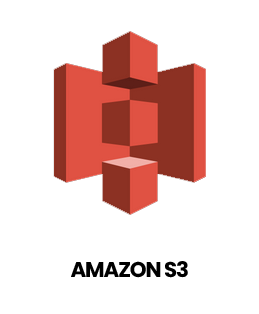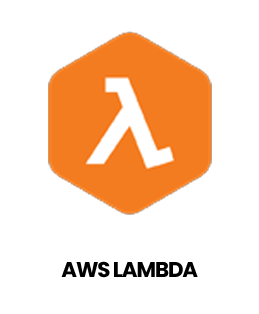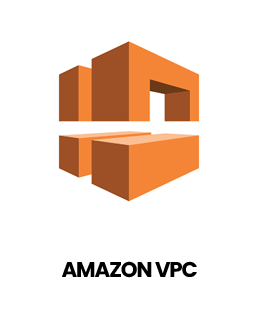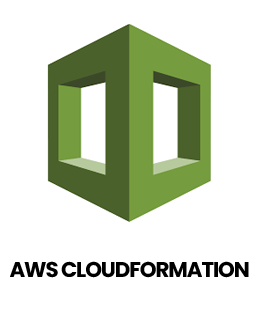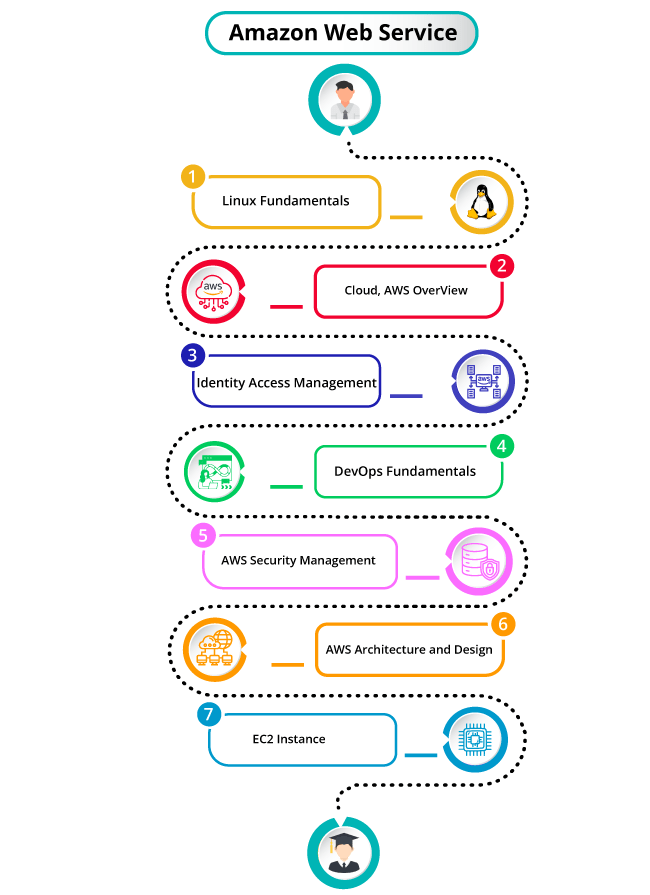Additional Info
Why Should We Learn AWS Cloud Architect Master in ACTE?
If you're interested in becoming more proficient in cloud technology, enrolling in ACTE's AWS Cloud Architect Master program is a good choice. The need for cloud architects has skyrocketed since the introduction of cloud computing, creating an urgent need for qualified candidates. The AWS Cloud Architect Master program at ACTE will teach you all you need to know to launch a successful cloud architecture career.
Students who complete ACTE's AWS Cloud Architect Master Program have a thorough familiarity with cloud computing and the AWS platform. Students get an understanding of cloud computing and the fundamentals of AWS services including AWS IAM, CloudFormation, and EC2 during the course of the program. Also, students will have hands-on experience in developing, launching, and maintaining cloud-based apps. They will also learn how to use Amazon for data analytics, security, and storage.
The ACTE AWS Cloud Architect Master program features practical laboratories where students can put what they learn into practice by creating and administering their own Amazon instances. In addition, the course provides students with study materials and sample exams to help them get ready for the AWS Certified Solutions Architect exam. Students may reach out to the program's support staff and other participants through an online forum.
Amazon Provides AWS Cloud Technologies:
Amazon Web Services (AWS) is a powerful but simple cloud computing platform that helps organizations rapidly develop, launch, and manage their cloud-based software and services with little upfront investment. AWS's many cloud services enable businesses to design, deploy, and scale their applications with unprecedented speed and efficiency. These services span the gamut from computing to storage to databases to analytics. Access control, collaboration, security, compliance, and cost management are just few of the areas in which AWS aids enterprises in managing their cloud-based resources. Workflows, mobile services, analytics, and machine learning are just some of the Amazon services that aid organizations in developing and releasing their apps more quickly. Amazon also offers a set of utilities for automating processes and controlling cloud-based assets for enterprises. Amazon provides organizations with the tools they need to develop, launch, and maintain cloud-based software and services rapidly and affordably.
- Amazon Elastic Compute Cloud (EC2)
- Amazon Simple Storage Service (S3)
- Amazon Elastic Block Store (EBS)
- Amazon Virtual Private Cloud (VPC)
- Amazon Relational Database Service (RDS)
- Amazon DynamoDB
- Amazon Elastic MapReduce (EMR)
- Amazon Simple Queue Service (SQS)
- Amazon Simple Notification Service (SNS)
- Amazon CloudFront
- Amazon Route 53
- AWS Lambda
Should We Invest Time and Money into Being an Amazon Cloud Architecture Master Now?
If you want to grasp Amazon Cloud Architecture, it could be worth your while to put in the effort and resources required to do so. The ability to learn and implement Amazon's cloud architecture is highly sought after since it is both powerful and sophisticated. If you have the correct information, you can build and maintain cloud infrastructures that are both efficient and affordable.
There are, however, a few considerations to keep in mind before committing to Amazon's Cloud Architecture. First, you need to determine how much you are prepared to spend in terms of both time and money and how much progress you can reasonably anticipate making in a certain amount of time. Second, think about how relevant the knowledge you receive will be to your present position and field. Last but not least, think about how applicable the knowledge you acquire will be to your career plans.
Whether or not to put money into Amazon's cloud infrastructure rests with you. Your employment prospects may improve if you commit to learning the technology and are certain that doing so will pay off in the long run.
Advantages of Completing the Amazon Cloud Architecture Master Program Certification:
Achieving a recognized and respected certification in the cloud architecture space: By earning the Amazon Cloud Architecture Master Program certification, you will demonstrate your skill in designing, developing, and deploying applications on the Amazon Web Services platform. This certification is highly respected and will be a valuable asset in your career.
Enhancing your professional credibility: Having a certification in cloud architecture is a great way to stand out from the competition and show employers that you have the skills and knowledge to deliver reliable and secure solutions. The certification also demonstrates that you are committed to staying up to date with the latest cloud technologies.
Gaining an edge in the job market: As the demand for cloud architects continues to grow, having an Amazon Cloud Architecture Master Program certification can give you an edge over other applicants. Employers will be more likely to hire someone with a certification in this field since it shows that you understand the complexities of cloud architecture.
Becoming an AWS solutions architect: As part of the certification program, you’ll learn how to design, develop, and deploy applications on the AWS platform. This will make you an invaluable asset for any organization looking for an AWS solutions architect.
Accessing career-boosting resources: The Amazon Cloud Architecture Master Program certification also provides access to a range of career-boosting resources such as workshops and webinars. These resources will help you stay up to date with the latest cloud technologies and ensure that you are always ahead of the curve.
Once You Complete the Amazon Cloud Architecture Master Program, What Kind of Work can You Expect to Find?
A broad range of opportunities exists in the cloud computing industry for graduates of the Amazon Cloud Architecture Master Program. You may be able to find work as a Cloud Architect, Cloud Engineer, Cloud Solutions Architect, Cloud Developer, or Cloud Security Architect, depending on your level of expertise and education. Jobs in system administration, DevOps, and project management may also be available to you. Opportunities for cloud workers are growing as cloud technology develops. If you complete the Amazon Cloud Architecture Master Program, you will be well-equipped to enter the competitive field of cloud computing.
- Cloud Solutions Architect
- Cloud Security Architect
- Cloud Database Administrator
- Cloud Network Architect
- Cloud DevOps Engineer
- Cloud Systems Administrator
- Cloud Systems Engineer
- Cloud Data Scientist
- Cloud Software Developer
- Cloud Infrastructure Engineer
Which Fields Provide the Most Popular Career Opportunities in Cloud Architecture?
A Cloud Security Architect is someone who plans and executes the protection measures for a company's cloud-based resources and programs. Anyone interested in this position should have a firm grasp of cloud security principles, tools, and procedures.
A Cloud DevOps Engineer's job is to automate the cycle of creating, releasing, and maintaining cloud-based software. To be successful in this position, you must have experience with cloud computing and knowledge of both software development and IT operations.
A Cloud Network Engineer's job is to create and deploy networking solutions for a company's cloud infrastructure. To be successful in this position, you must be familiar with cloud computing and networking protocols.
A Cloud Database Administrator plans, builds, and maintains databases used by a company's cloud-based services. You need to be familiar with database architecture and management as well as cloud computing to succeed in this position.
Perspectives on the Future of Mastering AWS Cloud Architecture
There's a lot of potential in learning Amazon Cloud Architecture. The requirement for experts who can create and execute reliable cloud solutions is only expected to increase as the cloud computing market develops and expands. Nowadays, many businesses rely on AWS, the most popular cloud platform. Learning Amazon Cloud Architecture is thus crucial for anybody considering a career in the cloud computing sector.
Increasing the platform's scalability and adaptability will likely become the primary emphasis of future Amazon Cloud Architecture. The need for new and better services on AWS will increase as more and more businesses move their apps and workloads to the cloud. In addition to making the platform simple to use and maintain, Amazon must prioritize the provision of trustworthy cloud solutions.
To be competitive, AWS must maintain its emphasis on creating new tools for managing and constructing cloud infrastructures. Access to data and apps, as well as the creation of automation tools, and the incorporation of machine learning, might all play a role. To guarantee that businesses get the most out of their cloud investments, AWS will also need to maintain its emphasis on making the platform as cost-effective as possible. With the proliferation of new cloud services, Amazon will have to maintain its lead. As the competition among cloud service providers heats up, Amazon will need to maintain its lead in terms of service quality, feature breadth, and security.
The prospects for experts in Amazon Cloud Architecture are bright. The need for qualified people who can develop and execute effective cloud solutions is expected to expand as more and more businesses move their operations to the cloud. Anybody interested in a future in the cloud computing sector would do well to become proficient in Amazon Cloud Architecture in light of the company's ongoing growth and the growing demand for cloud services.
Prerequisites for AWS Cloud Architecture Master Program:
The AWS Cloud Architecture Master Program is an advanced-level certification programme that teaches professionals how to build, implement, and operate applications and infrastructure on the Amazon Web Services (AWS) Cloud platform. Individuals must have a minimum of one year of hands-on experience designing and implementing cloud-based applications, as well as a working understanding of creating and deploying applications on the AWS platform, to be eligible for the Amazon Cloud Architecture Master Program. People should comprehend the fundamental AWS services, such as Amazon EC2, Amazon VPC, and Amazon S3.
- Fundamental knowledge of computer science ideas and programming languages such as C, C++, Java, or Python.
- Fundamental understanding of operating systems such as Linux or Windows.
- Knowledge of networking principles such as IP addressing, the Domain Name System (DNS), and the OSI model.
- Knowledge of cloud computing principles and services includes Amazon Web Services (AWS), Microsoft Azure, Google Cloud Platform, and OpenStack.
- Knowledge of database principles and technologies including SQL, NoSQL, and relational databases.
- Knowledge of best practices in security, such as encryption, access control, and identity and access management (IAM).
- Understanding of virtualization and container technologies.
- Knowledge of data center operations and administration, including storage and backup.
- Working knowledge of scripting and automation technologies such as Chef, Puppet, and Ansible.
- The ability to comprehend technical specifications and create solutions that fulfill those specifications.
What pay range did we anticipate for this Amazon Cloud Architecture Master program after completion?
The expected salary range for Amazon Cloud Architecture Master degree graduates is heavily dependant on the individual's expertise as well as other variables such as the particular job market in which they are seeking employment. According to PayScale statistics, the typical annual income of Amazon Cloud Architects is Rs 12,80,000, with some salaries reported as high as Rs 16,40,000. Moreover, Glassdoor reports that the average base compensation for Amazon Cloud Architects is Rs 13,90,000 per year, with some salaries reaching Rs 18,70,000 yearly. According to the most current ZipRecruiter statistics, the average yearly income for Amazon Cloud Architects is Rs 14,10,000, with some salaries reported as high as Rs 20,30,000.
Online Classes:
ACTE Institute offers a complete online Amazon Cloud Architecture Master program to assist students in developing the skills required to become an AWS Cloud Architect. Students will gain the knowledge and skills needed to build, implement, and manage durable and cost-effective cloud computing systems on the Amazon platform. The curriculum is intended to assist students in understanding the many components of Amazon Cloud Architecture, such as virtualization, storage, networking, security, serverless computing, and others. It also includes information on transferring existing apps to Amazon, building AWS architectures, growing cloud operations, and using automation. Students may learn from anywhere in the globe and at their own speed since the curriculum is delivered online. It is suitable for people who are already acquainted with the fundamentals of cloud computing but want to learn more about the AWS platform. ACTE Institute also provides mentoring and professional support to students in order to help them get the most out of the program. In addition, the institution offers a number of other AWS-related courses and tools to assist students to keep current in the field.







